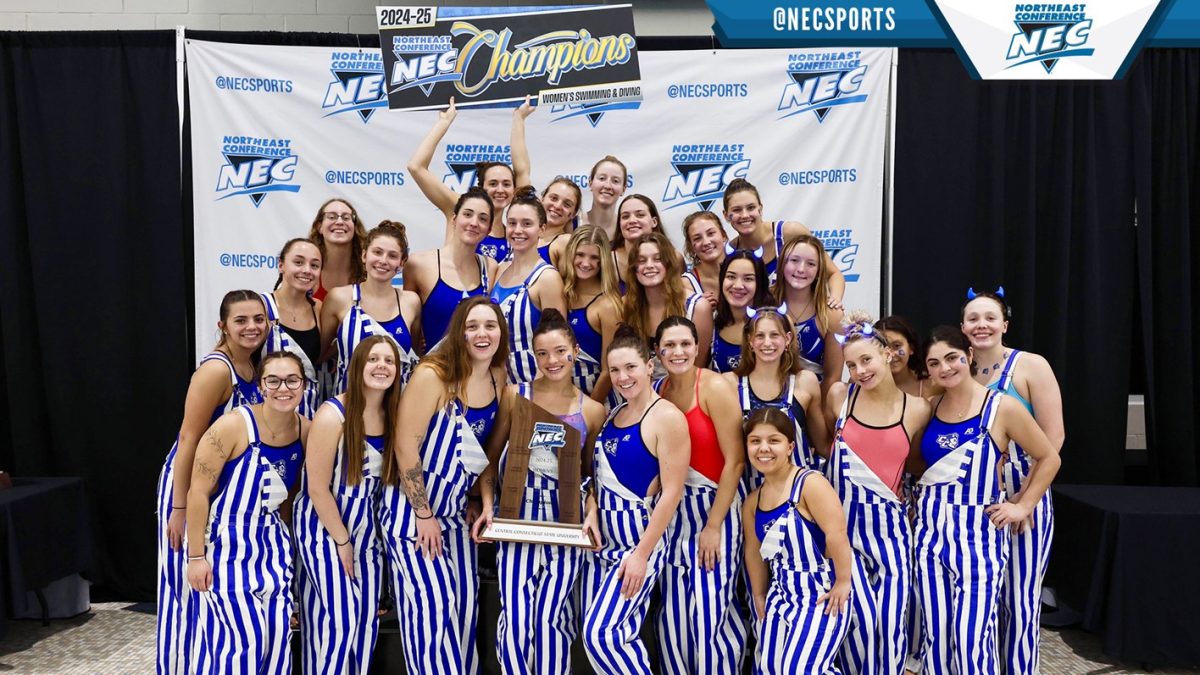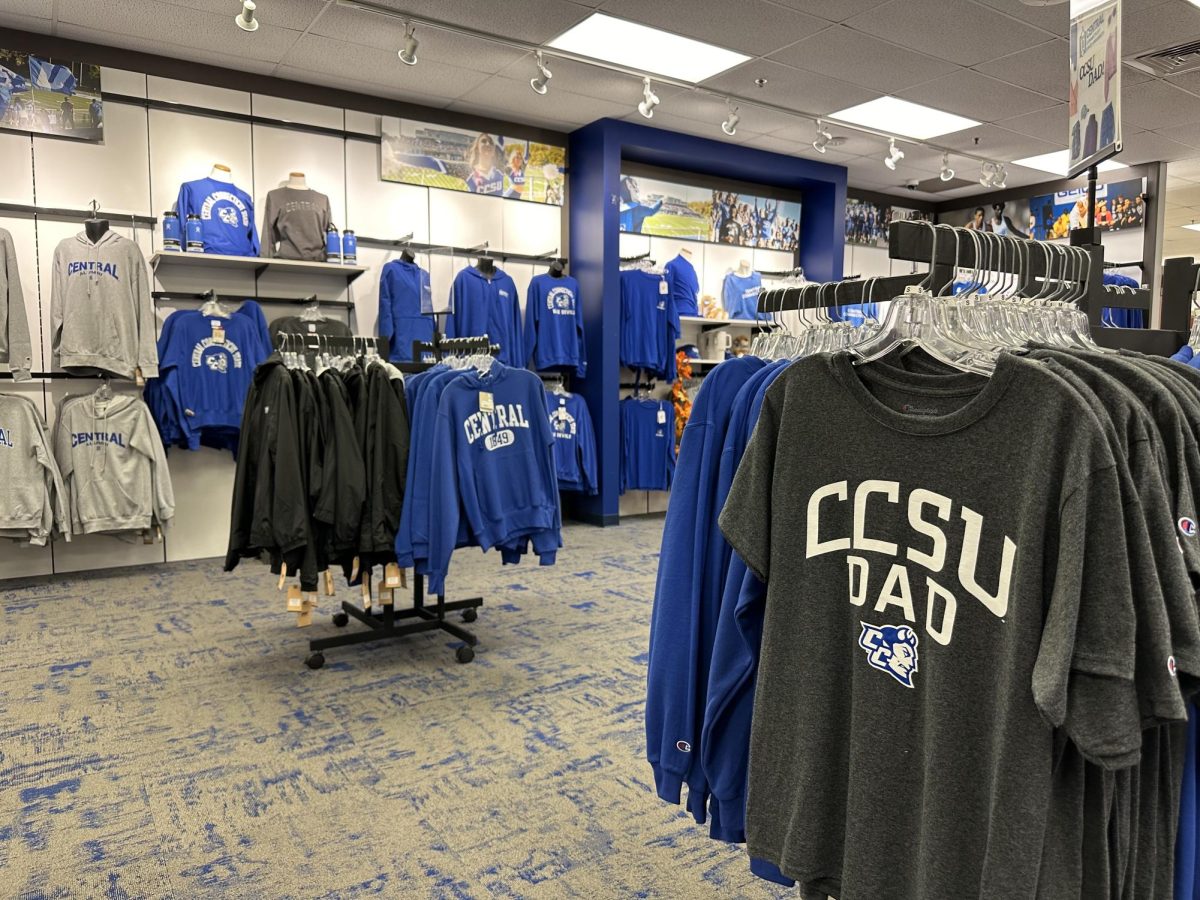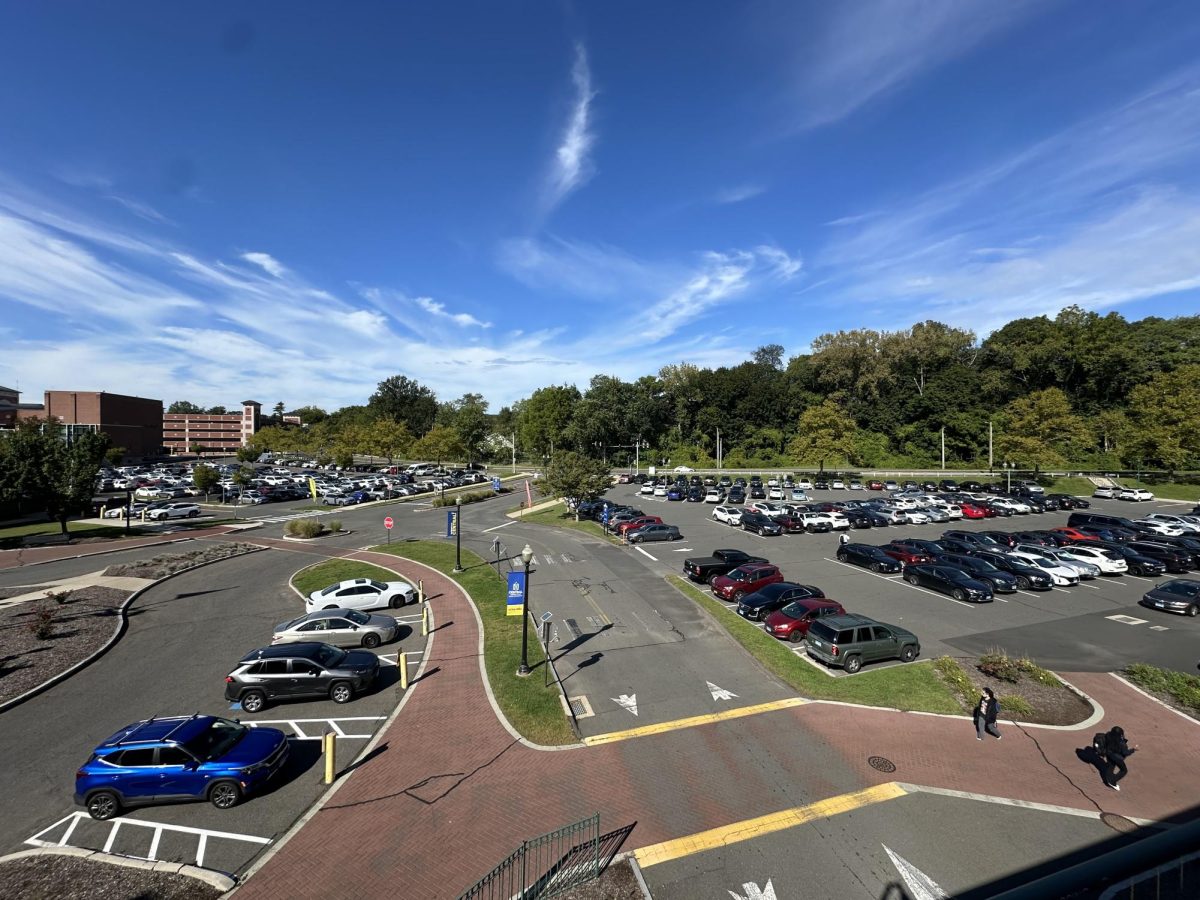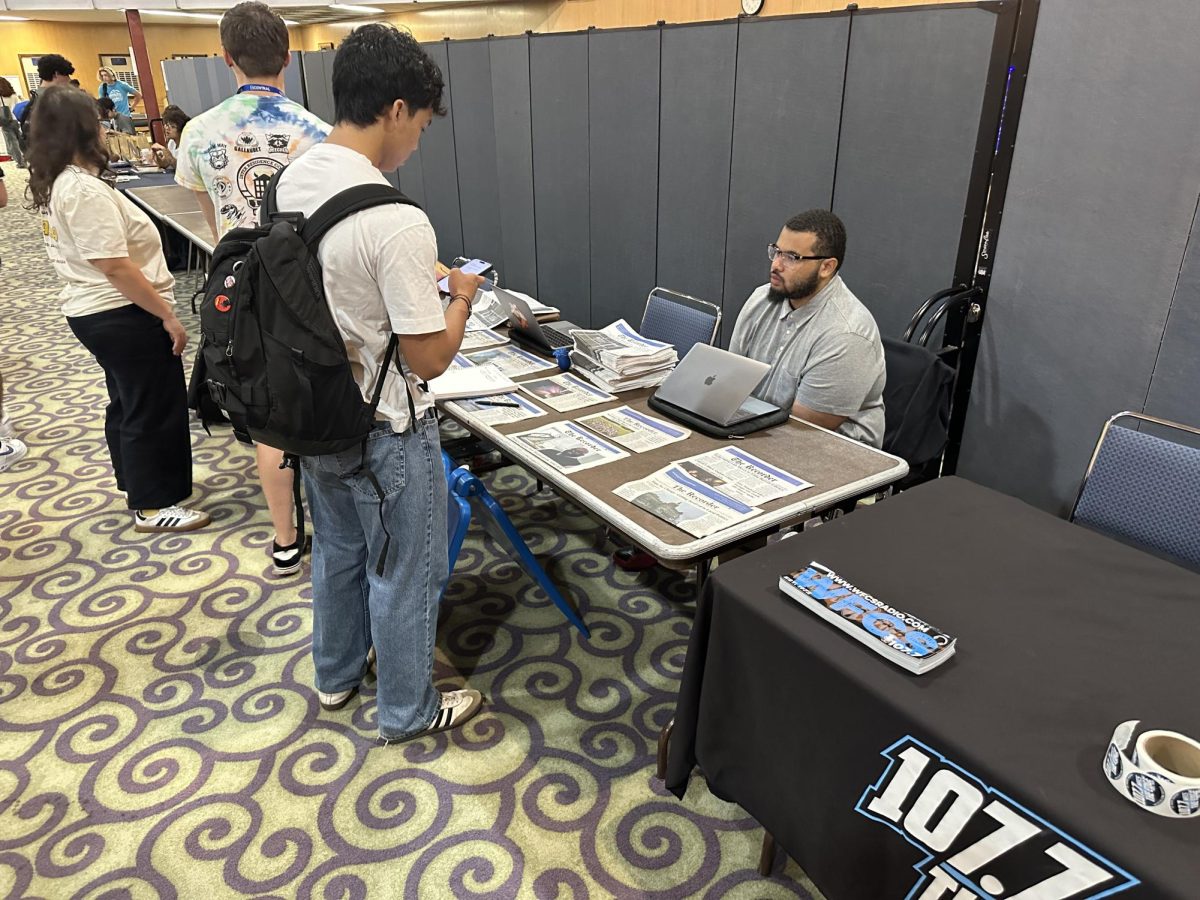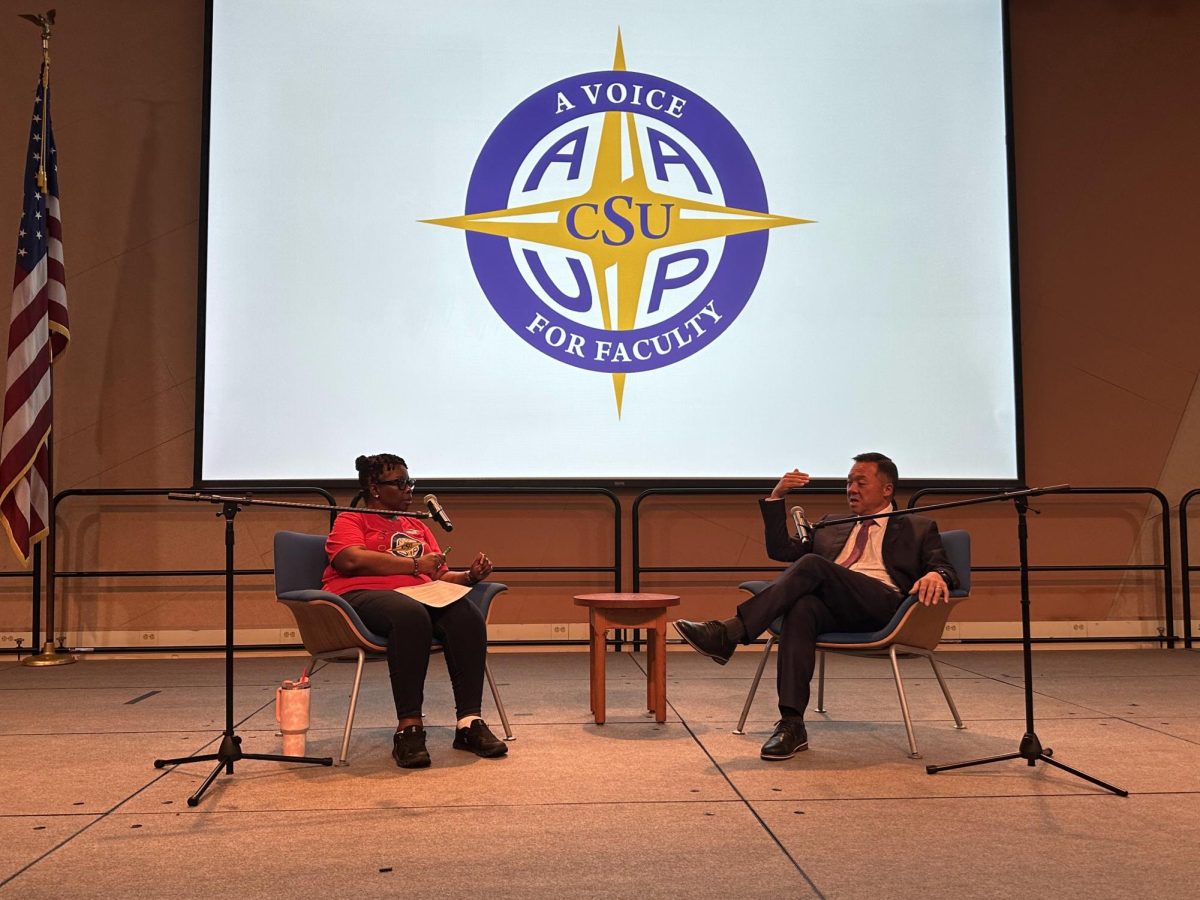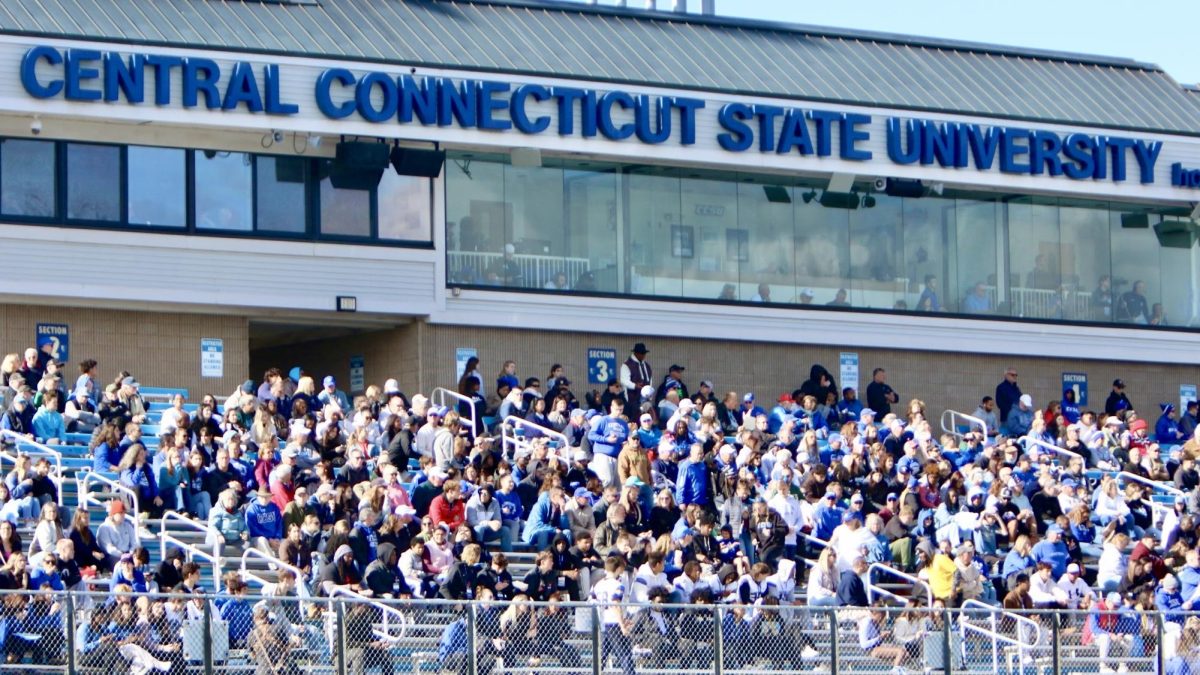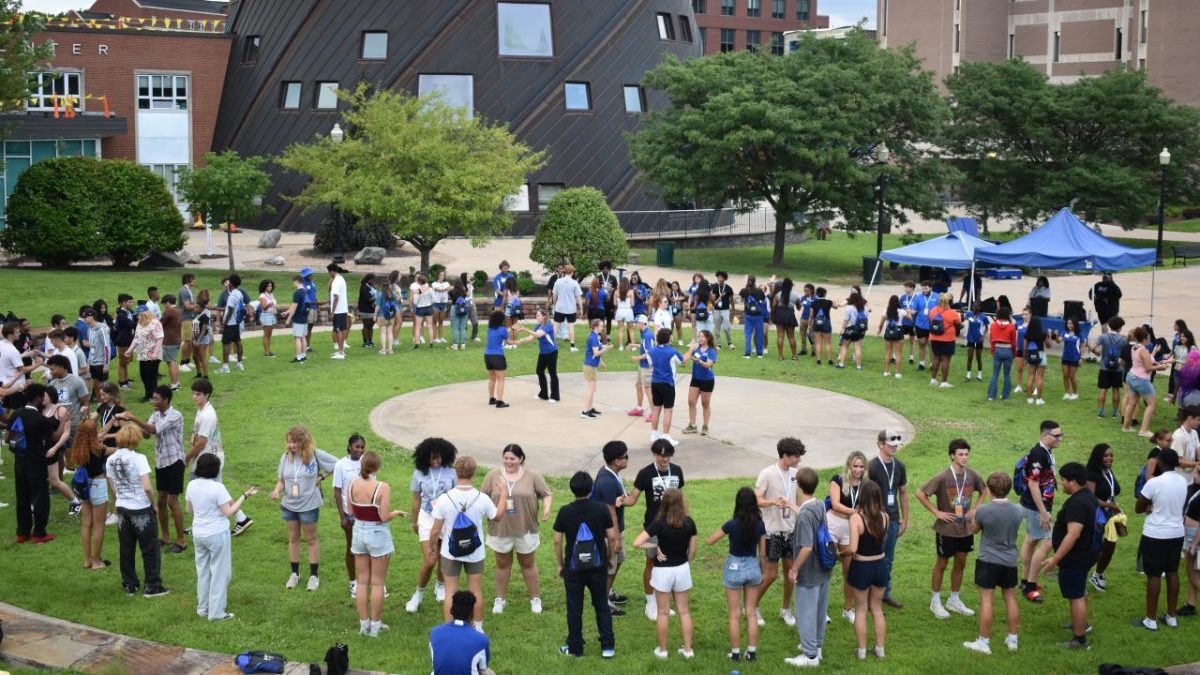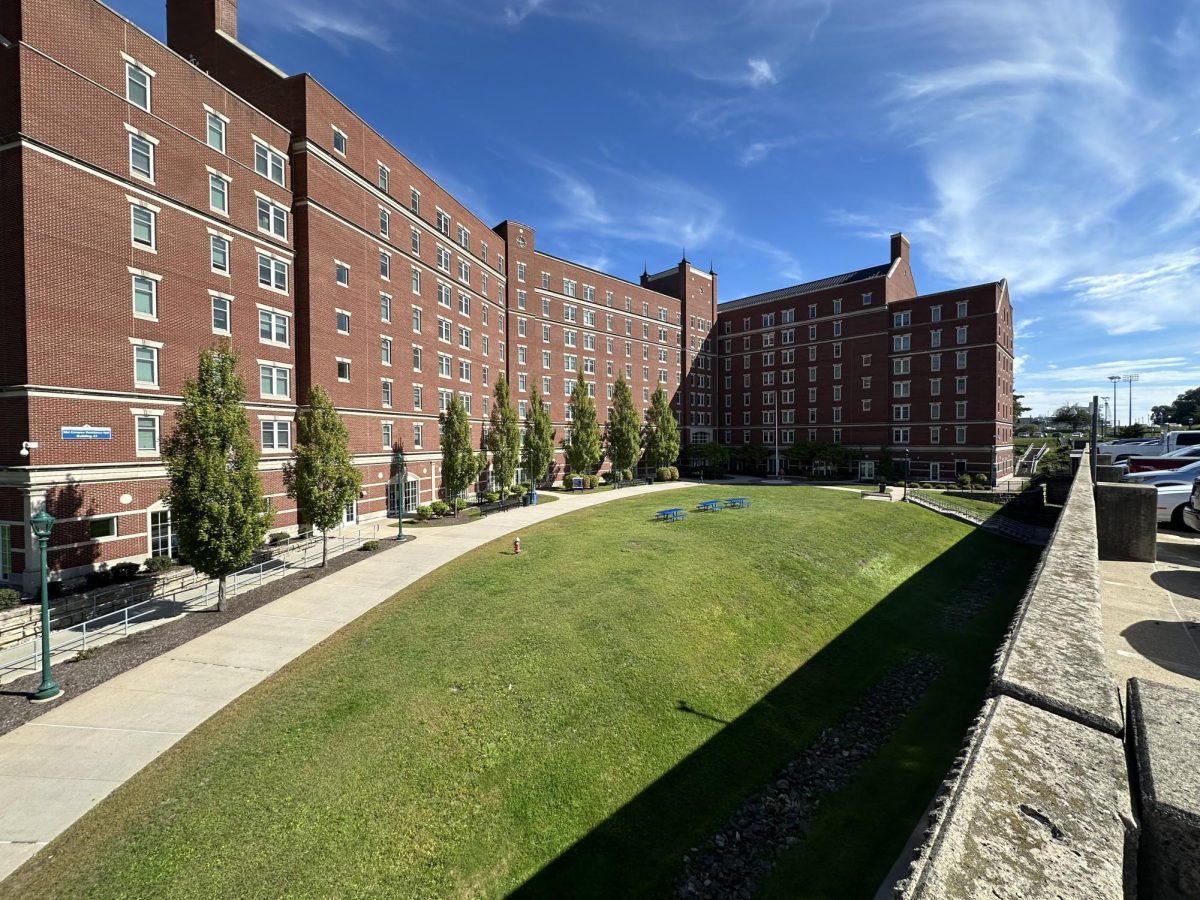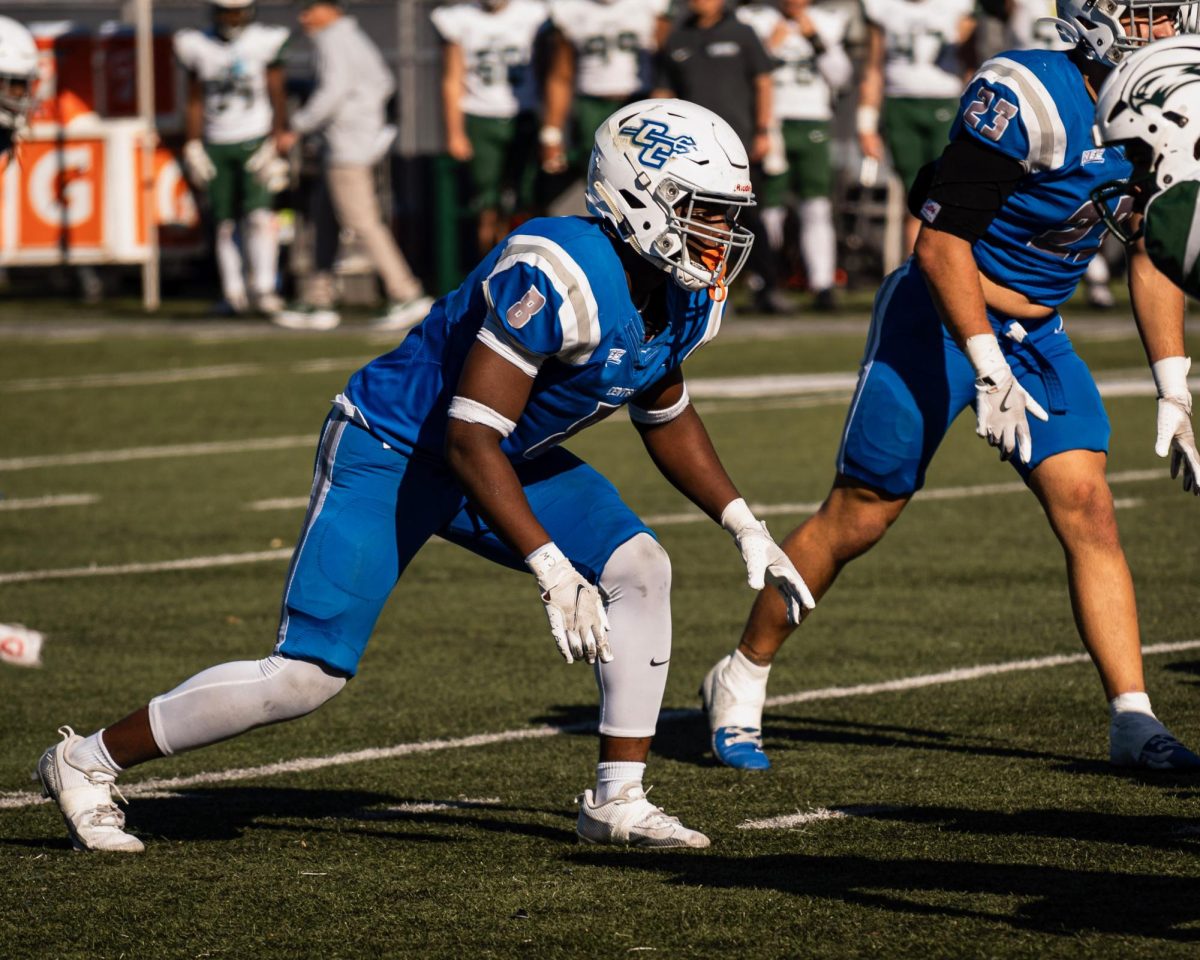Sigma Tau Delta and The Helix hosted a Mocktail Party on Oct. 9 in the English department as a celebration of Banned Books week.
The event, hosted annually on Banned Books week, featured a bartender making drinks based on banned books such as “Big Brother” for George Orwell’s 1984.
The event also had tables full of mocktail snacks, packets of information on banned books, and even some samples of the books available for attendees to read while at the event.
Many Central Connecticut State University English professors and students, not all English majors, attended the event.
“I came out because I wanted to see what the event was about with the banned books, because I have a very strong opinion against the banning of books,” said history major Jaret Pliska.
Pliska said his strong opinions against banning books stem from the importance of the content within said books.
“I’m really against the censorship of books because when authors publish books, put words on a page, everything has a meaning. Even if it is face value, you’re just ripping away learning experiences from people when you ban books,” he said.
Many students shared the sentiment that they enjoyed going to an event like this because they strongly oppose banning books, and they enjoy what CCSU does to spread awareness by having events like this one.
CCSU English Professor Mary Collins believes it is important to be wary of the implications a banned book might have on a student, depending on the content.
“I think it’s complex. I think you have to worry about trigger warnings…I don’t think we should be censoring but there has to be some context and opening for people to decide if they want to engage with the text,” she said.
Collins thinks that banning a book that might have these triggers is overbroad censorship.
“I think that you should inform them [of the possible triggers a banned book may have], and allow gateways for different people to respond to difficult texts…when you create those kinds of spaces you’re allowing a freedom to engage or not to engage, which is better than banning, which would mean no room for engagement,” she said.
One of the authors who was featured heavily on the lists was Toni Morrison, who frequently wrote novels on themes like the legacy of slavery and the consequences of racism in America.
Morrison had books featured at the event, like The Bluest Eye and Beloved, which were banned in various schools’ curricula because of their unflinching portrayals of graphic violence in relation to slavery and racism.
Secondary English education major Sarah Lippman was shocked to see Morrison on the banned list.
“I just recently finished Beloved, and [it] was fantastic. [It] is on the banned book list, which I can’t believe. I would recommend it to anyone.”
Lippman shared what she described as a “common sentiment” at the event.
“I think it’s important not to just let books be banned. I feel like it’s silencing important history and literature from authors, as well as different authors’ perspectives.”
Lippman said her parents collect banned books, and she always enjoys reading them, and because of this, would love to see university professors teach about them.
“I think if professors can build [the silencing of authors and their viewpoints] into their units, I’m 100 percent there.”
Lippman loved the idea behind the event and thinks it is a good model of what universities can do to stand up to censorship.
“I feel like stuff like this is a great example of what universities can do [to react or prevent censorship]. I think just making sure that students have access to any and all types of literature without any kind of censorship is really important.”
Secondary English education major Morgan Veach said she really enjoyed the sentiment around an event like this, and that CCSU is a breath of fresh air compared to where she came from regarding banned books.
“I grew up in a very conservative area, and so those colleges definitely had more an issue when it came to [certain] banned books, but I’ve noticed that here [at CCSU] it is not as big of an issue.”
CCSU English professor Robert Dowling thinks that banning books is never needed, and that there is a straightforward way to solve it.
“Needless to say, we’re dead set against banning any literature or literary materials. Somebody doesn’t want to read something about gay people or African Americans, or you name it? Then, don’t read it.”
Dowling does not want CCSU students to worry about literary work being censored at our university.
“There’s very little fear of anything being banned here. We often do outreach programs with schools and museums, like the Mark Twain House, and of course, Huckleberry Finn [a book published by Twain] is a banned book.”

